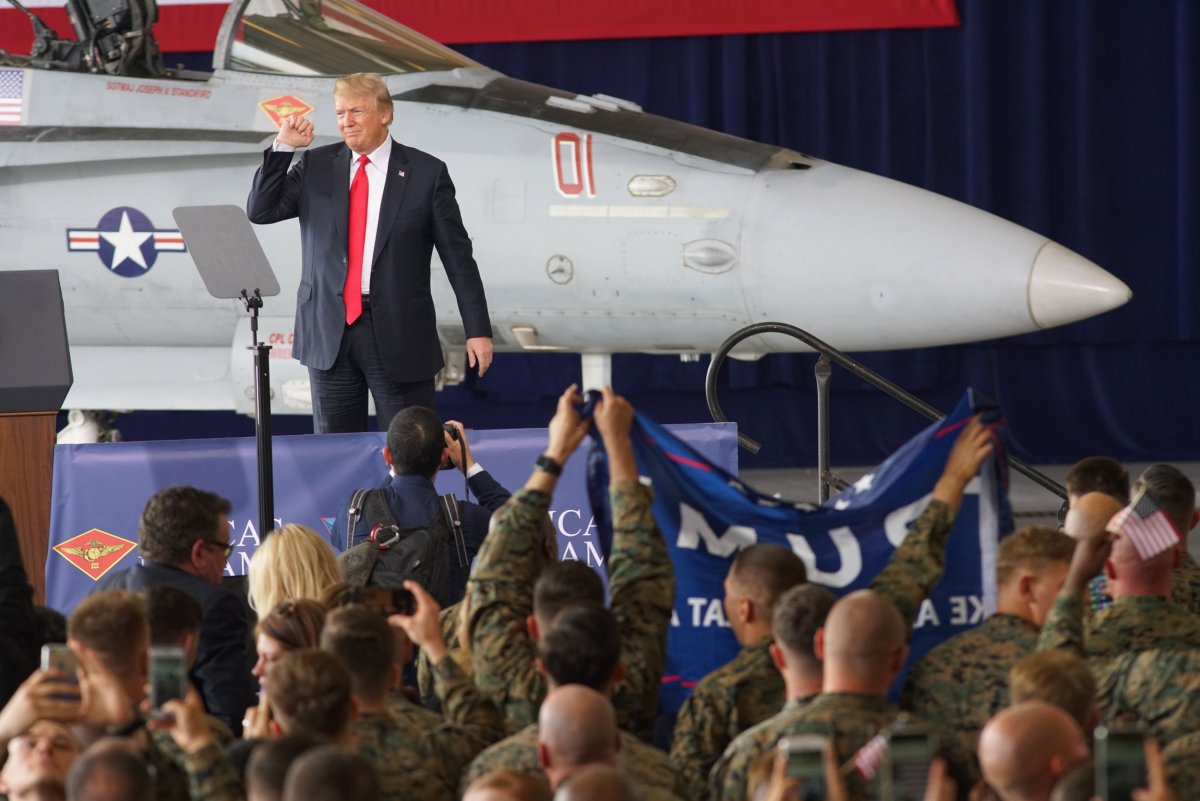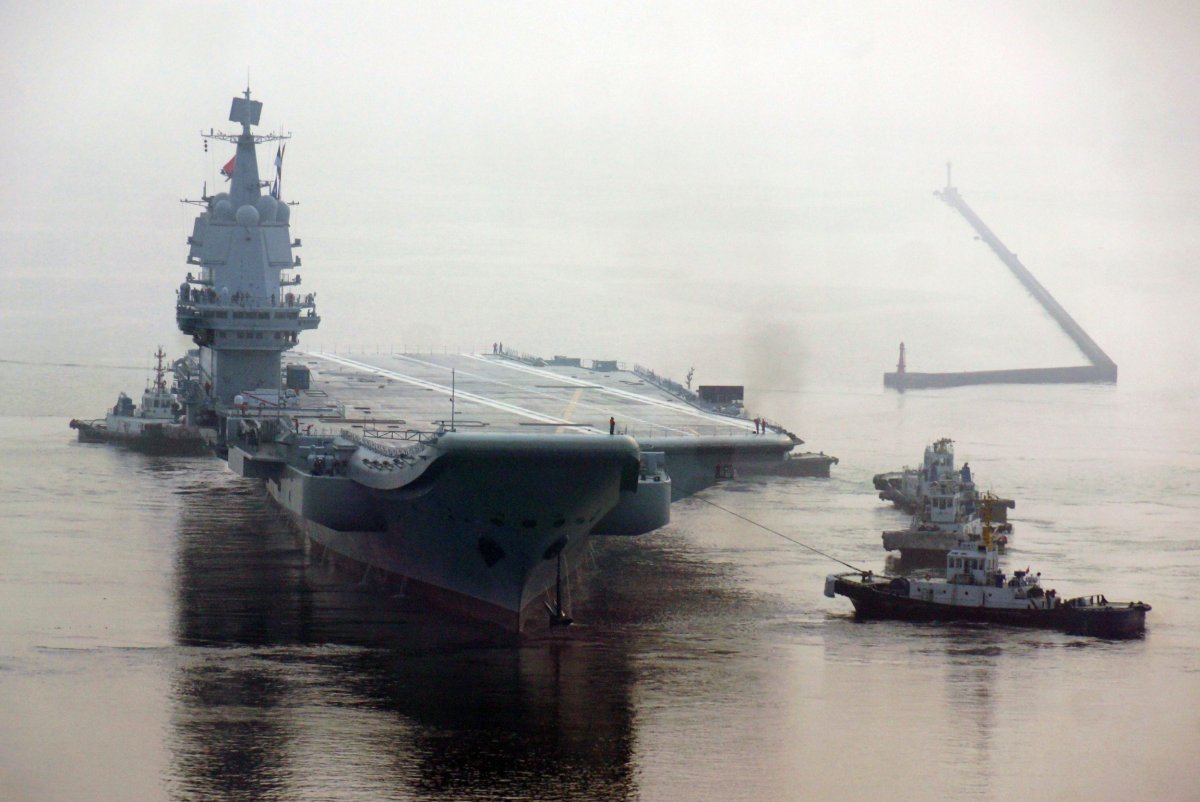China's official military newspaper criticized President Donald Trump's inflated defense budget, arguing it would not help the Republican leader achieve his domestic policy goals.
The commentary, authored by Li Xiang of the War Studies College at the People's Liberation Army Academy of Military Science and edited by the official PLA Daily, tore into the recently passed 2019 National Defense Authorization Act, which boosted the military spending by nearly $20 billion to a decade-spanning record of $717 billion. The author argued that despite the president's best efforts, "the U.S. armed forces have failed to live up to Trump's expectations. Scandals like ship collisions, drug abuses, and rapes have repeatedly incurred.
"Today, safety and stability are expectations of people around the world, and cooperation and win-win are the general trends. The U.S. cannot 'make itself great again' by simply investing more in its defense spending," Xiang continued, referencing Trump's prolific campaign slogan.
"The U.S. authorities should realize that the main obstacle to reach its 'Make America Great Again' goal is not that its military is not strong enough, but the reckless measures it takes to become the only superpower," the author concluded.

Xiang cited deadly collisions suffered last year by Arleigh Burke-class destroyers USS Fitzgerald and USS John S. McCain. The writer also referenced last month's Associated Press report that unearthed legal proceedings from 2016 against a number of personnel accused of doing drugs at Wyoming's F.E. Warren Air Force Base, where nuclear missiles are stationed.
The Chinese military commentary included the findings of a RAND Corporation study: that U.S. troops stationed overseas were 10 percent more likely to be the target of attacks than they were 10 years ago. The number rose to 25 percent in the Middle East and North Africa, two regions where the U.S. has staged military interventions and remained deeply involved.
Related: Russia Will Take China's Side Against U.S. in World Trade War
Xiang brought up the deadly Islamic State militant group (ISIS) ambush that killed four U.S. Special Forces in Niger in October, writing that "the reality underlying these phenomena is that, it is impractical to back up the great dream of 'making America great again' just by simply pouring more money into the U.S. military."
The commentary also criticized Trump's willingness to withdraw from international agreements and institutions, saying such moves "seriously damaged the reputation of the U.S. government and impaired the 'soft power' and 'leadership' of the United States in the West. Since the beginning of the Trump administration, in early 2017, the U.S. has exited the Paris Climate Agreement, the Trans-Pacific Partnership, the Iran nuclear deal, the United Nations Educational, Scientific and Cultural Organization (UNESCO) and, most recently, the U.N. Human Rights Council."

The U.S. retains a sizable lead over top military competitors Russia and China, and both countries have been critical of U.S. defense installations abroad, including the Asia-Pacific. China has been especially vocal about what it sees as an expansionist U.S. military doctrine in the region, and has pursued its own military buildup in the disputed waters of the South China Sea, prompting U.S. criticism and warnings.
In order to better compete with a much more powerful U.S. military and other contemporary threats, Chinese President Xi Jinping has conducted a yearslong campaign of reorganization and modernization of his armed forces. U.S. and Chinese military postures have created a tense atmosphere in the South China Sea, with each blaming the other for the friction.
Uncommon Knowledge
Newsweek is committed to challenging conventional wisdom and finding connections in the search for common ground.
Newsweek is committed to challenging conventional wisdom and finding connections in the search for common ground.
About the writer
Based in his hometown of Staten Island, New York City, Tom O'Connor is an award-winning Senior Writer of Foreign Policy ... Read more
To read how Newsweek uses AI as a newsroom tool, Click here.








